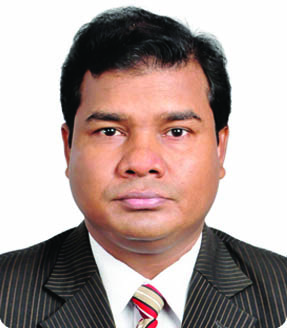Budget to stimulate Covid recovery, say analysts

Expressing reaction over the proposed budget for the FY 2021-22, country's leading economic analysts underlined the need for strict implementation of the budget to ensure employment of people and food supply for them.
Executive Director of Policy Research Institute (PRI), Ahsan H. Mansur said it has to be ensured that the people may enjoy the fruits of this budget.
Mentioning that implementation of the budget is a big challenge, he laid due importance on good governance so that people at large can be brought under vaccine coverage
Focusing on policy reforms to boost private sector investment analysts said it is essential to stimulate the post-COVID recovery process.
Former Finance Adviser Dr. Mirza ABM Azizul Islam said the NBR might achieve 85 percent of its revised target this year.
He said raising the target for tax revenue collection is important as the country's tax-GDP ratio is one of the lowest, below 10 percent, in the world.
"NBR will have to expand tax coverage rather than increasing tax rates. Proper enforcement of tax measures is necessary to increase tax collection", he added.
Shedding light on the declining trend in revenue collection in the recent budgets, analysts mention that 83% of the actual revenue target was met in the fiscal 2016-17 which decreased to 75% in 2017-18 and 74% in 2018-19.
Dr Selim Raihan, Professor, Department of Economics, University of Dhaka and Executive Director, said it is quite expected that considering both pre-COVID as well as post-COVID challenges the budget will lay special focus on this, but he pointed out that the existing budget structure suffers from low revenue generation and slow implementation of ADP.
They said the prime objective of the proposed budget is to ensure better health management while restoring the income level of people through employment generation. To attain this objective, they mentioned four key areas of priority: Health, Education, Social Safety Net and Agriculture.
Mentioning that the pandemic has caused the national poverty rate to increase from 21.6% to 42%, but no specific programme for the new poor was introduced in the budget of FY2020-21.
The safety net allocation was around 16.8% of the total budget in FY 2020-21. This figure is much lower if allocations for pension for retired government officers, savings certificate interest and secondary and higher education stipend are not considered.
He stressed the importance of COVID-19 management related budget allocations to salvage the health sector through ensuring timely vaccination drives, border controls and building capacity of the medical workforce.
Dr Raihan also urged the government to focus on policy reforms to boost private sector investment which is essential to stimulate the post-COVID recovery process.



